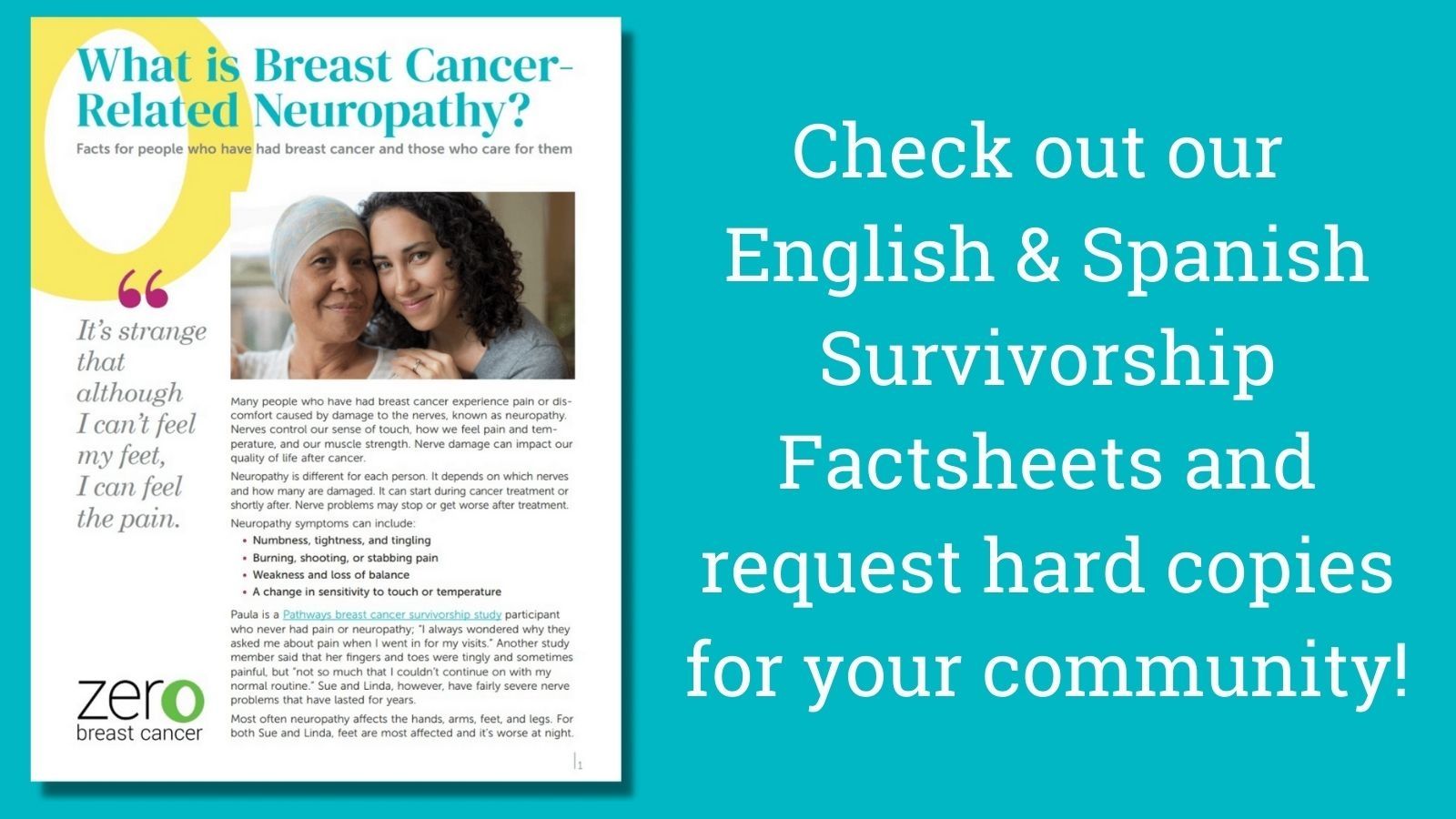What is Breast Cancer-Related Neuropathy? Part 1
Many people who have had breast cancer experience pain or discomfort caused by damage to the nerves, known as neuropathy. Nerves control our sense of touch, how we feel pain and temperature, and our muscle strength, so these changes can impact our quality of life after cancer. While researchers have much to learn, we know about causes and some ways to manage it.
Neuropathy is different for each person. It depends on which nerves and how many are damaged. It can start during cancer treatment or shortly afterward. Nerve problems may end, or they might get worse after treatment ends. Often patients only hear about the acute side effects and may not know that neuropathy can result from cancer or cancer treatment.
Neuropathy symptoms can include:
- Numbness, tightness, and tingling
- Burning, shooting, or stabbing pain
- Weakness and loss of balance
- A change in sensitivity to touch or temperature—either feeling more (extra sensitive) or less (loss of feeling)
Paula is a Pathways breast cancer survivorship study participant who never had pain or neuropathy; she “always wondered why they asked me about pain when I went in for my visits.” Another study member said that her fingers and toes were tingly and sometimes painful, but “not so much that I couldn't continue on with my normal routine.” Sue and Linda, however, have fairly severe nerve problems that have lasted for years. They shared their stories with Paula.
Most often neuropathy affects the hands, arms, feet and legs. For both Sue and Linda, feet are most affected and it’s worse at night. For Sue, on the nights when it flares up, it is difficult to sleep. “I can’t stand anything on my feet,” she said. “It’s strange that although I can’t feel my feet, I can feel the pain.” Linda’s heels throb at night and she sleeps on her side to avoid having them touch the mattress. When she wakes up, she must sit on the side of the bed and wait before she can get up.
For Linda, the numbness and dull aching pain has gotten worse over time. “I’m limited as to what I can do,” she said of the neuropathy. Sue experienced a loss of balance because “I had no feeling in my feet, so I started using a cane.” She also had an electrical shock feeling in her feet and hands, then it would go into her legs and arms. Because of the neuropathy, she can’t drive or ski now. “It was tougher giving up things I can no longer do than it was finding out I had cancer,” Sue told Paula.
Read the next blog: What is Breast Cancer-Related Neuropathy? Part 2



